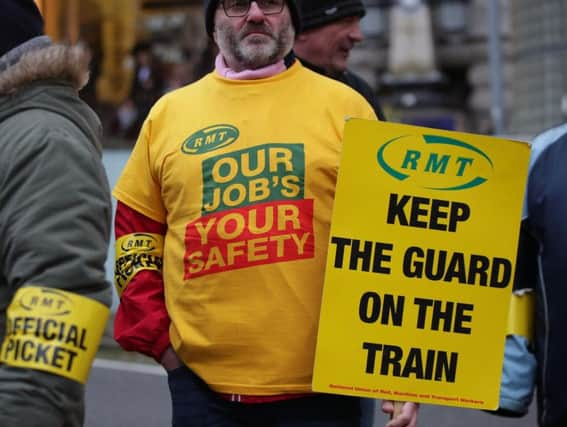Northern rail staff confirm two more days of strikes - just before Easter


The workers' union RMT has been locked in talks with Northern (Arriva Rail North) for months in a row over plans to reduce the number of guards on trains, which it says will endanger safety.
It has already carried out 14 days of co-ordinated strike action, and today announced two more, for Monday, March 26, and Thursday, March 29.
Advertisement
Hide AdAdvertisement
Hide AdThe latter day is Maundy Thursday, when the nation's railways are traditionally busy with passengers heading home for the long Easter weekend.
The union has also demanded talks with the company and the Department for Transport, aimed at reaching a solution.RMT General Secretary Mick Cash said: “Every single effort that RMT has made to reach a negotiated settlement with Northern Rail over safe operation and safe staffing has been kicked back in our faces.
"No one should be in any doubt, this dispute is about putting the safety of the travelling public before the profits of the private train companies “It is frankly ludicrous that we have been able to negotiate long-term arrangements in Scotland and Wales that protect the guards and passenger safety, but we are being denied the same opportunities with rail companies in England. “Theresa May and Chris Grayling are happy to stand aside and cheer on overseas rail companies that rip-off the British passenger with eye-watering far increases to subsidise their domestic transport operations while throwing the guards off our trains.
"If it’s good enough for Wales and Scotland to put safety first, then it’s good enough for the rest of the UK.“RMT remains ready for the tripartite talks we have suggested.”
Northern says the introduction of driver controlled operation for train doors would reduce the amount of time spent at stations, and bring performance benefits, especially on congested routes.